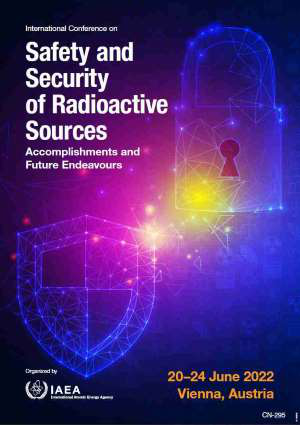Speaker
Description
In 2016, South Africa established its Network for Nuclear Education, Science and Technology called SAN-NEST, which is aimed at strengthening the nuclear science and technology education programs in the country to better meet future demands in terms of quality, capacity and relevancy; sustaining the national radiation safety and nuclear security regimes for radioactive sources in various Institutions of the Country and prepare the nation for the approved new Modular Nuclear Power Plant (MNPP). To date SAN-NEST has seven academic Institutions and four Nuclear Industry Stakeholder Partners. The North-West University (NWU) is one of the members of SAN-NEST, which falls under the umbrella of AFRA-NEST. At the NWU, is the Centre for Applied Radiation Science and Technology (CARST), in SAN-NEST. CARST was established in 2009 by the nuclear Industry with a mandate to train Postgraduate students in nuclear technologies (e.g. GEN IV Reactors for modular power plants).
One of the deliverables from SAN-NEST is acquiring a Teaching/Research Reactor that will be used for training of Nuclear scientists and Postgraduate students in order to meet the nuclear demand recently approved by the Parliament (to include nuclear energy in the Energy mix of South Africa). The other deliverable is to provide a mechanism to advice (Government, e.g. within the GEN IV Forum) on research priorities in the form of research focus.
The nuclear modular nuclear build, announcement has raised the stakes even higher for a nuclear industry feeder like the Centre for Applied Radiation Science and Technology and the Nuclear Engineering Entity both at the North-West University. Both of these Entities are responsible for training Postgraduates for employment in any of the country’s nuclear industry, in particular after the new MNPP is commissioned. South Africa has also been sending most of its students outside (e.g. to JINR, in Dubna, Russia) for Masters and Doctorate training in nuclear science and technology.
This paper aims at assessing the milestones, pitfalls and challenges faced by SAN-NEST in its goal of being a platform where Nuclear Industry (Academic & Partners), exchange information among themselves and more importantly with the Government, concerning the:
Planning for the new proposed NPP Module,
establishment, maintenance and sustainability of national radiation safety and nuclear security regimes for radioactive sources,
safety and security systems for research and nuclear power facilities (e.g. for the Teaching/Research Reactor and the proposed modular NPP)
education and training of enough nuclear scientist to be employed in the MNPP facility after commissioning.
In particular, we will present the major role to be played and achievements by the Centre for Applied Radiation Science and Technology (CARST), in SAN-NEST. To date the Centre has produced 2 PhD graduates in Nuclear forensics (a nuclear security tool to combat illicit trafficking of radiological materials) while at the same time increasing national preparedness to respond to radiological incidents and emergencies involving radioactive sources. Two more are graduating in May 2022. The centre through one of its PhD candidates is currently participating in the IAEA CRP J023100 and the new CRP (K42013).
It is envisaged that the paper will highlight these successes gained- and any challenges- to the end of December 2021, and explore what kind of help and advice could be required from the IAEA. Thus the knowledge to be gained from this Conference will be vital to the continuity of SAN-NEST.
| Country OR Intl. Organization | Republic of South Africa |
|---|

